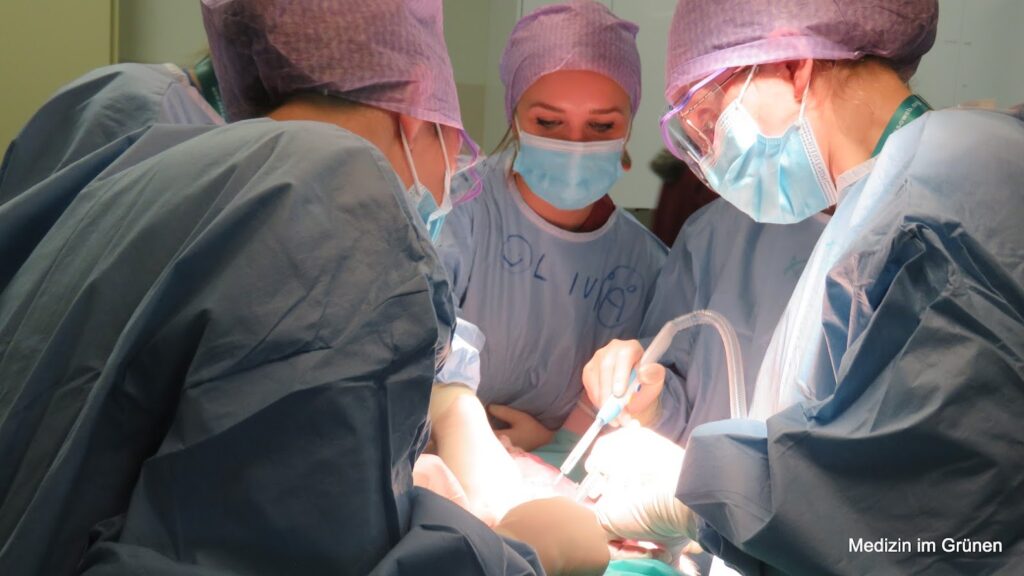
Peritoneal Surface Malignancies
The ESSO Training Pathway in Peritoneal Surface Malignancies (PSM), developed in cooperation with the European School of Peritoneal Surface Oncology (ESPSO), offers theoretical and hands-on training in laparoscopy, cytoreductive surgery, and HIPEC.
What's included
In addition to the mandatory and optional courses, the pathway includes a short observership and culminates with the awarding of an ESSO Certificate of Competence, with the option to take the recommended EBSQ examination. Designed to recognise your expertise and commitment to evidence-based PSM surgery, it’s the ultimate step toward excellence in surgical oncology.
Participants wishing to further extend their expertise may join the the European School of Peritoneal Surface Oncology.
Related courses
Basics of Oncology for Surgeons
Level 1
Mandatory
Annual
In person
This interactive in-person programme equips young surgeons with core knowledge and skills in surgical oncology. Organised once per year, this course provides a solid foundation in cancer biology, prevention, surgical techniques, and the role of the surgical oncologist within a multidisciplinary team. Through plenary lectures and discussion sessions, participants will explore cancer progression, early diagnosis, multimodal treatment strategies, and ethical, patient-centred care. The course also emphasises cancer screening and prevention, with reference to the Europe's Beating Cancer Plan.
Laparoscopy in the Treatment of PSM (Hands-on)
Level 2
Optional
Annual
In person
This 2-day course explores the latest advancements in the minimally invasive management of peritoneal surface malignancies. Led by leading experts, it covers laparoscopic peritonectomy, laparoscopic HIPEC, PIPAC/ePIPAC, and emerging technologies such as immunofluorescence, augmented reality, robotics, and AI. Through lectures, case discussions, and hands-on cadaveric sessions, participants will gain practical experience and a comprehensive overview of laparoscopy’s role in staging, treatment, palliation, and research.
Management of HIPEC after Cytoreductive Surgery (Hands-on)
Level 1
Mandatory
Annual
In person
This annual advanced course on HIPEC after cytoreductive surgery focuses on evidence-based decision-making in the management of primary and secondary peritoneal cancers. Through a multidisciplinary approach, it combines theoretical knowledge with hands-on training. Participants will perform cytoreductive procedures in small groups using advanced surgical tools, and engage in case discussions, video-based sessions, and expert-led lectures. Topics include treatment principles for peritoneal surface malignancies from colorectal, gastric, appendiceal, ovarian cancer, pseudomyxoma peritonei, and mesothelioma, along with future directions in PSM care.
PSOGI International Congress
Level 2
Mandatory
Biennial
In person
The congress focuses on advancements in the treatment of PSM, featuring a multidisciplinary programme that includes leading clinical specialists and researchers in surgical oncology from around the world.
Peritoneal Surface Malignancy
Level 2
Mandatory
Biennial
In person
Organised once every 2 years, this comprehensive advanced workshop explores the latest advances in the multimodal treatment of PSM. Led by international experts, it focuses on diagnosis, patient selection, and evidence-based interdisciplinary management. Participants will gain insights into high-level surgical techniques, the value of cytoreductive surgery across disease types, and strategies to reduce morbidity and improve outcomes. Topics also include ongoing studies, quality of life, and end-of-life care. The programme combines plenary lectures with multidisciplinary case discussions.
Surgical Technique - Abdominal Surgery (Hands-on)
Level 1
Optional
Annual
In person
Organised every year, this hands-on workshop focuses on the surgical anatomy of abdominal organs and vessels, integrating practical dissection with interactive discussions on management challenges. Using specially embalmed bodies, participants will apply oncological surgical techniques, learning key pearls and pitfalls for each organ. The course includes video sessions, plenary lectures, and a pre-course 3D surgical anatomy atlas to enhance anatomical knowledge and surgical skills. Objectives cover cardiovascular access to abdominal organs and advanced oncologic surgical techniques.
Artificial Intelligence in Healthcare
Level 1
Optional
Annual
In person
Artificial Intelligence (AI) is transforming healthcare, offering tools that enhance both clinical efficiency and patient care. In this hands-on workshop which is organised once per year, interested surgeons and radiologists will explore how AI works, learn to train models for real-world applications, and apply their medical expertise to develop practical solutions using clinical data, images, and reports.
Fluorescence-Guided Surgery
Level 1
Optional
Biennial
In person
Organised every 2 years, this course offers essential and advanced insights into fluorescence-guided surgery. It is focusing on tumour and lymphatic imaging, sentinel lymph node detection, visualisation of vital structures (bile ducts, ureters, nerves), and tissue perfusion assessment. Participants will explore both standard and targeted imaging agents (e.g., antibody-, peptide-, nanobody-based) and gain practical experience in open, laparoscopic, and robotic settings.
Hands-on sessions using different fluorophores and imaging systems are complemented by plenary lectures on key topics, including lymphatic and tumour imaging, perfusion assessment, and intraoperative navigation of vital structures.
Related webinars
To complement your knowledge gained through the Training Pathway courses, ESSO recommends following optional webinars covering both specialty-specific and transversal topics. These webinars provide in-depth insights, may include interactive case discussions, and are designed to enhance clinical understanding and support continuous professional development.
Short-term observership
To enhance their training, participants in the PSM Training Pathway are invited to independently arrange a short-term observership at one of the European School of Peritoneal Surface Oncology (ESPSO)-approved units. Lasting 1 to 3 months, this self-organised observership can include access to operating theatres, outpatient consultations, MDT meetings, and research activities. Direct clinical involvement is not anticipated.
ESSO Certificate
The ESSO Certificate of Competence is awarded upon successful completion of the full Training Pathway, including all mandatory courses and a short-term observership. It recognises a surgeon’s advanced knowledge and skills in evidence-based surgical oncology within their chosen specialty.
EBSQ examination recommendation
Each year, the European Union of Medical Specialists (UEMS) organises the European Board of Surgery Qualification (EBSQ) Examination in Surgical Oncology. As part of the ESSO PSM Training Pathway, participants are advised to take this exam to complete their Training Pathway.